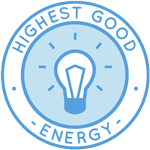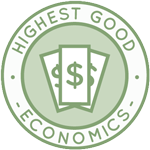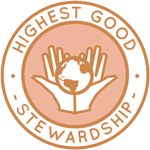Eco-future Design – One Community Weekly Progress Update #357
One Community is creating eco-future design templates covering sustainable and replicable approaches to food, energy, housing, education, for-profit and non-profit economic design, social architecture, fulfilled living, global stewardship practices, and more. Everything we create is open source and free-shared and modularly replicable. Combined, these components will be used to build a global collaboration of teacher/demonstration hubs to help others further duplicate and improve these eco-future designs.
- Here’s our project overview
- Here’s our world-change methodology
- Here’s how this becomes self-replicating
- Here’s how we are open source and free-sharing all the do-it-yourself designs
OUR MAIN OPEN SOURCE HUBS
Click on each icon to be taken to the corresponding Highest Good hub page.
One Community’s physical location will forward this movement as the first of many self-replicating teacher/demonstration communities, villages, and cities to be built around the world. This is the January 26th, 2020 edition (#357) of our weekly progress update detailing our team’s development and accomplishments towards the creation of eco-future design templates:
Eco-future Design
One Community Progress Update #357
DONATE | COLLABORATE | HELP WITH LARGE-SCALE FUNDING
CLICK HERE IF YOU’D LIKE TO RECEIVE AN EMAIL EACH WEEK WHEN WE RELEASE A NEW UPDATE
YOU CAN ALSO JOIN US THROUGH SOCIAL MEDIA
ONE COMMUNITY WEEKLY UPDATE DETAILS
HIGHEST GOOD HOUSING PROGRESS
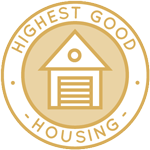 One Community is improving life on our planet through Highest Good housing that is artistic and beautiful, more affordable, more space efficient, lasts longer, DIY buildable, and constructed with healthy and sustainable materials:
One Community is improving life on our planet through Highest Good housing that is artistic and beautiful, more affordable, more space efficient, lasts longer, DIY buildable, and constructed with healthy and sustainable materials:
- Learn about: Our Upcoming Crowdfunding Campaign
- Learn about the different village models: 7 Sustainable Village Models
- Visit the open source portals for the first two: Earthbag Village OS Hub | Straw Bale Village OS Hub
This week the core team began what we hope will be the 2nd-to-final review of the Murphy bed instructions. This week’s focus was starting to go through the list of parts areas needing checking, comparing parts lists to the model and the instructions, and identifying errors and suggesting how to fix them.

Began the 2nd-to-final Review of the Murphy Bed Instructions – Click for Earthbag Village Furniture Page
Oluyomi “Yomi” Sanyaolu (Technical Writer and Researcher) also completed his 14th week with the team. This week Oluyomi continued with the trompe and ram pump implementation research. This week he completed the DIY tutorial for building a ramp pump system, worked out the cost analysis totaling less than $100 and with most parts easily purchased form your local Home Depot, and expanded the section of the trompe focusing on its applications which included wastewater treatment, mining and agriculture. You can see some of this work here towards the creation of eco-future design templates and we’d say this brings the trompe and ram pump research to about 90% complete.
And Shadi Kennedy (Artist and Graphic Designer) also completed his 77th week developing the Murphy bed instructions. This week he focused on reviewing all the renders and working on creating a system for communicating which ones are needed and where within the instructions, so they can be easily inserted and updated in the future. The pictures below are examples of some of the pages this work is updating and we’d say this brings these assembly instructions to about 93% complete.
DUPLICABLE CITY CENTER PROGRESS
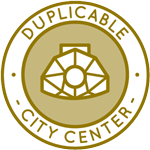 One Community is developing eco-future design plans through a Duplicable and Sustainable City Center that is LEED Platinum certified/Sustainable, can feed 200 people at a time, provide laundry for over 300 people, is beautiful, spacious, and saves resources, money, and space:
One Community is developing eco-future design plans through a Duplicable and Sustainable City Center that is LEED Platinum certified/Sustainable, can feed 200 people at a time, provide laundry for over 300 people, is beautiful, spacious, and saves resources, money, and space:
- Learn about this building and it’s function: Duplicable City Center Open Source Hub
This week Ron Huang (Mechanical Engineer) continued with his 37th week developing and refining the Energy Modeling tutorial needed to achieve our LEED Platinum certification. This week Ron continued with more work on the revised schedules and calculations related to the proposed energy plant schematics. You can see some of this work here towards the creation of eco-future design templates and we’d say we’re now about 92% complete with the City Center energy analysis component.

Continued Developing and Refining the Energy Modeling Tutorial Needed to Achieve Our LEED Platinum Certification ” Click for Page
HIGHEST GOOD FOOD PROGRESS
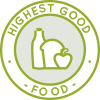 One Community is developing eco-future design plans through Highest Good food that is more diverse, more nutritious, locally grown and sustainable, and part of our open source botanical garden model to support and share bio-diversity:
One Community is developing eco-future design plans through Highest Good food that is more diverse, more nutritious, locally grown and sustainable, and part of our open source botanical garden model to support and share bio-diversity:
- Learn about the structures: Hoop House Hub | Aquapini & Walipini Open Source Hub
- See what we’ll be growing: Gardens & Hoop Houses | Large-scale Structures | Food Forest | TA
This week the core team continued working on our behind-the-scenes chicken Google Doc. We summarized and organized the food and water needs section, discussed the food types and rations most suitable for the types and ages of chickens chosen, took notes on chick starter foods and the introduction of treats, associating your voice when providing treats, and the importance of immediately introducing your new chicks to drinking water by directly dipping their bills in the water. We started final editing of the shelter details too. You can see some of this work here towards the creation of eco-future design templates.
And the core team continued developing the open source permaculture design content. This week’s focus was further development of Step 2 of the Permaculture Case Study section, “Assess Site Through Observation And Research.” This week we brainstormed and rewrote and reformatted the section so that it will include how we’re applying this step to all the main components of our project, not just food. You can see some of this behind-the-scenes work here towards the creation of eco-future design templates.
The core team working with Stefanie Dean (Researcher) also continued with development of the Transition Food Self-sufficiency Plan menu creation. This week’s focus was additional recipe research and consideration and further developing and refining the structure and function for all of the data spreadsheet you see in the pictures below.
Mohammad Almuzaial (Civil and Construction Engineer) also continued with his 10th week helping with the Aquapini/Walipini civil engineering details. This week he removed all the unrequired railings from the pond seating area, added railings to the four stairs going down to the pond area, searched native plants that we might add in the site, and added a playground, volleyball court, picnic and grill area, and seating/events area to the upper areas. You can see some of this work-in-progress here towards the creation of eco-future design templates and we’d say this brings this part of this component to 84% complete.
Ali Ghahremannezhad (Mechanical Engineer) additionally continued with his 8th week as a member of the team and working on the climate batteries for the Aquapini/Walipini structures. This week Ali worked on obtaining more accurate boundary conditions to use them for the 2D simulation of the climate battery for aquapinis and walipinis. A simple geometry for the greenhouse and the soil beneath it is assumed. Higher depth of the soil (50ft) is modeled considering the point that we can make sure the soil temperature remains constant throughout the year. Detailed convection and solar load were calculated based on the ceilings direction with respect to the Sun and slope of the ceiling.
A specific case was also designed for average conditions of a greenhouse at Los Angeles in January. You can see some of this behind-the-scenes work here towards the creation of eco-future design templates.
HIGHEST GOOD EDUCATION PROGRESS
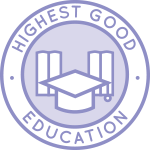 One Community is developing eco-future design plans through Highest Good education that is for all ages, applicable in any environment, adaptable to individual needs, far exceeds traditional education standards, and more fun for both the teachers and the students. This component of One Community is about 95% complete with only the Open Source School Licensing and Ultimate Classroom construction and assembly details remaining to be finished. With over 8 years of work invested in the process, the sections below are all complete until we move onto the property and continue the development and open sourcing process with teachers and students – a development process that is built directly into the structure of the education program and everything else we’re creating too:
One Community is developing eco-future design plans through Highest Good education that is for all ages, applicable in any environment, adaptable to individual needs, far exceeds traditional education standards, and more fun for both the teachers and the students. This component of One Community is about 95% complete with only the Open Source School Licensing and Ultimate Classroom construction and assembly details remaining to be finished. With over 8 years of work invested in the process, the sections below are all complete until we move onto the property and continue the development and open sourcing process with teachers and students – a development process that is built directly into the structure of the education program and everything else we’re creating too:
- Program Overview: Education Open Source Hub
- How the components work together: How to use the Education for Life Program
- Lesson Plans for Life – Lesson Plans How-to
- Foundations of Outstanding Leaders, Teachers, and Communicators
- Curriculum for Life
- Teaching Strategies for Life
- Learning Tools and Toys for Life
- Evaluation and Evolution
This week Dan Alleck (Designer and Illustrator) completed his 64th week helping with render additions and finishing work for the rooms in the the Ultimate Classroom. This week he began revisions and additions to the red room representing health, mindfulness, and music. What you see here is his first round of revisions and additions that included adding people, instruments, and wall posters.

Began Revisions and Additions to Red Room Representing Health, Mindfulness, and Music – Click for Page
Deema Ali (Graphic/Video Designer) also completed her 9th week as a member of the team by helping with another of the Ultimate Classroom renders. What you see here is a view looking south and her initial additions of plants, books, and backpacks in the entryway, and more people.
Ziqian Zheng (Architectural Designer and Drafter) continued with week 11 as a member of the team. This week Ziqian continued development of the Ultimate Classroom by adding more people, books, and other objects and creating test video walkthroughs. You can see some of this work here towards the creation of eco-future design templates.
HIGHEST GOOD SOCIETY PROGRESS
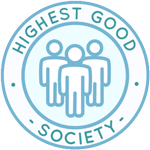 One Community is developing eco-future design plans through a Highest Good society approach to living that is founded on fulfilled living, the study of meeting human needs, Community, and making a difference in the world:
One Community is developing eco-future design plans through a Highest Good society approach to living that is founded on fulfilled living, the study of meeting human needs, Community, and making a difference in the world:
- Read the Highest Good society overview: Highest Good Society
- Learn about the model for fulfilled living and sharing: A Day in the Life
- Learn about the 4 economic models: RBE | For-profit | Non-profit | Entrepreneurship
- Learn about our open source community collaboration and management software: The Highest Good Network
Tengxiao Wang (Software Engineer) completed his 3rd week working on the Highest Good Network software. This week Tengxiao continued to work on the authentication module. He reorganized the relevant Redux actions, reducers and root component. He also repeatedly tested the Login, Header and Logout component and fixed bugs to make them more reliable. All the authentication related service calls have now been migrated to Redux.

Continued to Work on the Authentication Module of the Highest Good Network Software ” Click for Page
Henry Ng (React Developer) also completed his 3rd week with the team and working on the Highest Good Network software. This week Henry designed the Projects Page structure, created rows to display projects with the ability for the user to edit the project name, toggle the active status, view all the members of the project, and view all the WBS entries for the project by going to the WBS page. He also developed Delete and Active functions, and updated the quantity to the dashboard. You can see screenshots related to this work below towards the creation of eco-future design templates.
And last but not least, Siddharth Gore (Senior Software Engineer I) completed his 2nd week as a member of the volunteer team also working on the Highest Good Network software. This week Siddharth continued working on the User Profile Section adding UI for hours contributed and volunteer’s start and end Date. He also was able to get the admin and personal links from the database and display them into their respective sections. You can see some of this work here towards the creation of eco-future design templates.
AND WE PRODUCED THIS WEEKLY UPDATES BLOG – CLICK HERE TO SUBSCRIBE
FOLLOW ONE COMMUNITY’S PROGRESS (click icons for our pages)
INVESTOR PAGES
GET INVOLVED
DONATE | WAYS ANYONE CAN HELP | MEMBERSHIP
CLICK HERE FOR ALL PAST UPDATES
ECO-FUTURE DESIGN TEMPLATES – WHAT ONE COMMUNITY IS CREATING
One Community is creating a place to grow together and change the world together. We are creating a space that helps each other live in integrity with each other and the planet as we strive to be the greatest versions of ourselves. We do this by harmoniously respecting each other, nature, and the rest of our one shared planet.
Our goal is to demonstrate what we feel is the most sustainable, healthy, and fun environment we can create. A place based on compassion, kindness, and collaboration. This replicable community will serve as an example for what is possible.
Throughout our design process we are open sourcing and free-sharing everything needed for construction and replication of eco-future design templates. This includes what we call “Highest Good” approaches to food, energy, housing, education, for-profit and non-profit economics design, social architecture, fulfilled living, stewardship practices and more. We are creating these resources for implementation as individual components or complete developments called teacher/demonstration hubs. These hubs will help launch additional hubs as awareness and knowledge grow.
BUILDING THE FIRST OF MANY
One Community will be the first teacher/demonstration hub. It will function as an experiential-learning model that facilitates mass participation to address humanity’s most pressing challenges through: A replicable model for expansion, building seven self-sufficient village/city prototypes, becoming the world leader in open-source sustainability solutions, and evolving and expanding ALL aspects of sustainable living such as creating eco-future design templates.
ECO-FUTURE DESIGN TEMPLATES – WHY ONE COMMUNITY IS CREATING THIS
The One Community self-replicating model for eco-future design templates is capable of creating a sustainable planet within 30 years. We will achieve this by establishing successful teacher/demonstration hubs on every continent. Villages include designs appropriate for each of the five main types of climates. They also include options for even the most challenged economies. These hubs will collaborate with one another, share ideas, resources, and work together as a network to heal the planet. They will also transform the global lifestyle to a more enjoyable, fulfilling, healthy, and sustainable one.
The specifics of how One Community is accomplishing eco-future design templates can be found on the One Community Solution Model to Create Solution-creating Models Page. Research supporting and showing the benefits of a model like this can be found on our Research and Resources Articles Archive.
Even if we don’t achieve our ultimate goal of global transformation, a self-replicating teacher/demonstration model like this will take a relatively short period of time to positively affect millions while inspiring millions more. For One Community residents (the Pioneer Team), the idea of creating and sharing the social and recreational experience with visitors is also fun, exciting, fulfilling, and an additional reason why we are creating eco-future design templates.
ECO-FUTURE DESIGN TEMPLATES – WHY OPEN SOURCE
We are creating everything One Community does as open source and free-shared blueprints because we see this as the path to a new Golden Age of creativity, innovation, cooperation, and collaboration for all of humanity. Our model for creating eco-future design templates is a solution model that creates additional solution creating models enabling people to live and collaborate globally for The Highest Good of All. The easier we make everything we do, the faster we see the world transitioning.
Every aspect of this eco-future design model supports itself and contributes to its success, from the sustainable food, energy, and homes, to the social architecture, One Community Education Program, and open source sharing model itself. Each piece can be accessed, evolved, and even re-birthed as something completely new. It can be duplicated by itself or with other modules, with applications as diverse as the people who want and need them. The constantly expanding total model will additionally be able to be used in its entirety as the open source project-launch blueprint for a variety of duplicate teacher/demonstration communities, villages, and cities capable of being built virtually anywhere.
The most profound part is: the more we open source share, the more we help move everyone forward towards an eco-future design, the more people know about what we are doing and can participate, and the more successful and capable we are of project-launch blueprinting and sharing even more still. This is all supported and made possible because:
- We have the team to produce an extensive quality and diversity of tools and resources
- It gives us the opportunity to broaden the concept of sustainability and make it more desirable
- Areas we open source expand our ability to evolve even faster through global collaboration
- Each new area open sourced expands our target audience, advancing our world changing goals
- The more we show our ability to share what we are creating, the more others will benefit and want to join this movement and mimic the part we are playing in it
ECO-FUTURE DESIGN TEMPLATES – SUMMARY
One Community sees the issues of the world as interdependent and interconnected. To address them simultaneously, we are open-source blueprinting a more advanced standard of living by designing holistic, environmentally-regenerative, self-sustaining, adaptable solutions for all areas of sustainability such as creating eco-future design templates. We will model these within a comprehensive “village/city” which will be built in the southwestern U.S. This teacher/demonstration hub will be a place people can experience a new way of living and then replicate these eco-future design templates with our open source blueprints: creating a model solution that creates additional solution-creating models.
 One Community
One Community
